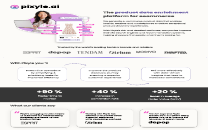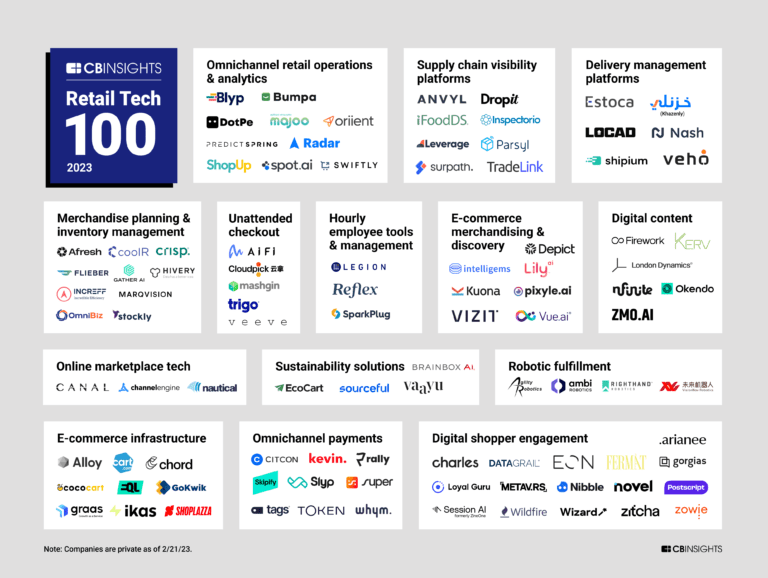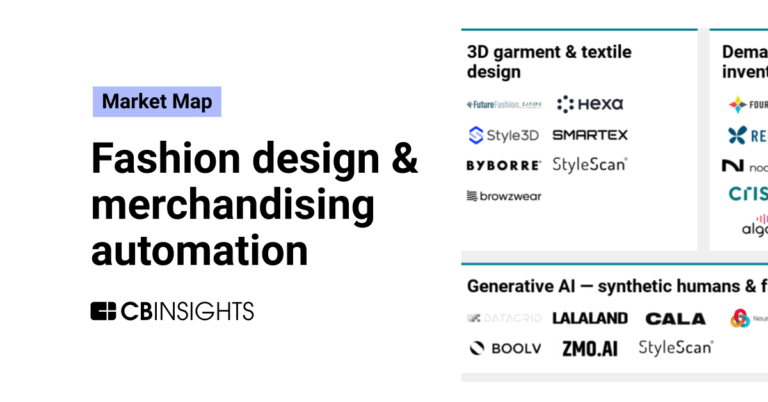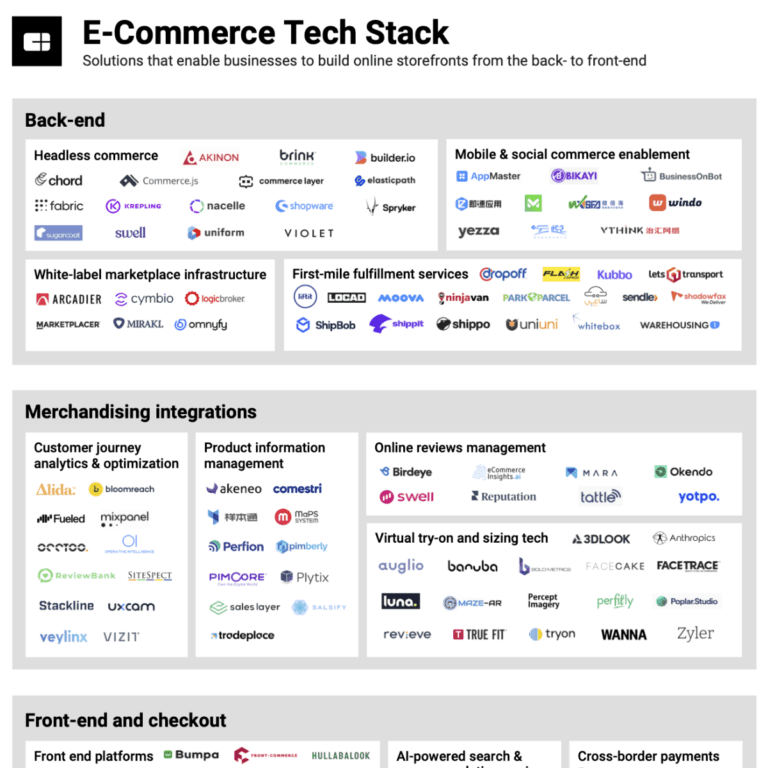
Pixyle
Founded Year
2018Stage
Seed VC | AliveTotal Raised
$1.16MLast Raised
$1.05M | 2 yrs agoMosaic Score The Mosaic Score is an algorithm that measures the overall financial health and market potential of private companies.
-155 points in the past 30 days
About Pixyle
Pixyle is an AI product data enrichment platform focused on enhancing product discovery experiences in the fashion e-commerce sector. The company offers solutions such as AI-powered product tagging, automatic image tagging, and label information extraction to improve site search and recommendations. Pixyle's services are utilized by brands, retailers, and marketplaces to drive conversions and customer loyalty. It was founded in 2018 and is based in Amsterdam, Netherlands.
Loading...
Pixyle's Product Videos


Pixyle's Products & Differentiators
Product Tagging
Product tagging is a suite for auto-tagging the entire catalogue in minutes, and to meet go-live deadlines as well as enhance product discoverability without hiring or training a dedicated team. It includes solutions such as: Automatic Tagging, Label Recognition, Augmented Tagging, Verified tags.
Loading...
Research containing Pixyle
Get data-driven expert analysis from the CB Insights Intelligence Unit.
CB Insights Intelligence Analysts have mentioned Pixyle in 3 CB Insights research briefs, most recently on Aug 21, 2023.

Mar 14, 2023 report
Retail Tech 100: The most promising retail tech startups of 2023Expert Collections containing Pixyle
Expert Collections are analyst-curated lists that highlight the companies you need to know in the most important technology spaces.
Pixyle is included in 4 Expert Collections, including E-Commerce.
E-Commerce
11,250 items
Companies that sell goods online (B2C), or enable the selling of goods online via tech solutions (B2B).
Artificial Intelligence
14,767 items
Companies developing artificial intelligence solutions, including cross-industry applications, industry-specific products, and AI infrastructure solutions.
Retail Media Networks
188 items
Tech companies helping retailers build and operate retail media networks. Includes solutions like demand-side platforms, AI-generated content, digital shelf displays, and more.
Retail Tech 100
100 items
The most promising B2B tech startups transforming the retail industry.
Latest Pixyle News
Apr 15, 2024
I still remember attending an event where the presenter wore a dress that perfectly matched what I had in mind, and I couldn’t help but wonder why there wasn’t a way for me to simply snap a picture and find that dress online. So, I suppose my frustration with the challenges of online shopping, together with my experience in AI and image understanding, drove me to start Pixyle.ai. The biggest challenge I identified on the market was the ease of finding what you want as a shopper. Although the core product of Pixyle.ai pivoted to solve the problem of manual data entry for e-commerce teams with AI, this is still part of our core value. Our mission is to provide outstanding AI product data for e-commerce teams to save time, that will ultimately help shoppers find the products they love hassle free. WWD: What are some of the other challenges facing retailing and brands from a consumer engagement perspective? S.K. : In today’s landscape of diverse technologies and AI tools , retailers and brands still encounter challenges in engaging consumers effectively. One big problem is that shoppers struggle to find what they want, since the filtering on the e-commerce sites is poor, or the search does not work well. This makes it tough for consumers to find items they like online, leading to them giving up on buying products, and e-commerce stores losing out on sales. All this is tied up to the dreadful process of e-commerce or merchandising teams having to manually input product data. So, to optimize time and processes, they input only the basic data and tags, like the category or the color of the item. However, if some person wants to buy a “puff-sleeve dress for a beach wedding,” and types this in the search bar, if the e-commerce store does not have sleeve type “puff sleeve” as data associated with their dresses, or “beach wedding” as an occasion, the customer won’t see any results back. It might be the case that the e-commerce store has 50 of those dresses, but it’s missing on sales since they are not shown back to a customer with a high shopping intent. The data associated with the products is crucial for many touch points of the customer experience. With richer data, all tools like personalization, recommendation or search will work better. The marketing teams will be able to run more targeted ads, or SEO teams improve their ranking with SEO-optimized product tags, titles and descriptions. Decision makers will have richer and better data on which they can base their decisions for future collections or sales planning. We see that the fashion industry is still quite traditional on the operational side. Teams still do a lot of things manually. I believe that AI has the potential to change this, by automating a lot of processes. At Pixyle.ai, we are automating the complete product data entry for e-commerce teams. Product tags, attributes, titles, descriptions, site search and SEO-optimized tags in multiple languages our clients get with Pixyle.ai in seconds from only one product image. WWD: How does your AI solution work? S.K. : Pixyle.ai is a product data enrichment platform that generates product data for fashion e-commerce using computer vision AI and generative AI. Pixyle’s AI models can automatically tag and organize product information for online stores in multiple languages, saving e-commerce teams hours of manual work. Svetlana Kordumova Brands use our AI platform to solve the pain of having to manually assign product data, which is taking them too much time and resources. This manual process is slow and inaccurate. Inaccuracies in product data result in finding products difficult for shoppers. Insufficient data also restricts product filtering options online. This inevitably results in less sales and conversions. For marketplaces, the pain point is in manually handling data for large amounts of products coming from different brands, which is time-consuming and costly. Extensive teams collaborate on product data entry procedures. To save time, this manual process is limited to only a few attributes, resulting in not having enough data to filter products online, or to provide good search results when someone types in a query in their search bar. Our product tagging solution powered by computer vision AI, saves e-commerce teams valuable time by automatically tagging images with rich attributes. For example, for a dress that is being sold on an e-commerce store, the attributes that Pixyle detects are “red,” “long sleeves,” “flowery” pattern, “V-neck,” “business casual” style, “midi” length, “belted,” etc. All of this data, Pixyle’s AI can generate in just 0.9 seconds, by processing one product image of the dress. If a person needs to input this data from scratch, it would take around three minutes on average per product. In simple terms, our visual AI engine generates tags from uploaded photos, whether by users or clients, depending on the business model of the e-commerce store. This allows for the entire catalogue to be auto-tagged in minutes, meeting deadlines and improving product discoverability without the need to hire or train a dedicated team. Pixyle.ai also provides optimized site search tags, which enrich inventory with precise and rich AI-generated tags from a lexicon of more than 20,000 attributes, all gathered from user’s search queries. This improves site search result relevance for e-commerce stores and simplifies shopping. For example, if a customer searches for a “puff-sleeve dress for a beach wedding party” with strong purchase intent on an e-commerce site, advanced search capabilities won’t matter if the products lack associated sleeve types or occasions. Even if the store stocks more than 100 such dresses, they won’t appear in the results, resulting in a missed opportunity for a high-intent sale. Label recognition is another AI solution offered by Pixyle.ai, that extracts clothing label data such as the exact brand, size, origin and material for fashion items, from the neck and side labels. This solution is used by e-commerce marketplaces in the secondhand industry. By taking photos of the labels and sending them to Pixyle’s label recognition AI, they are able to populate all the information found on the labels in a matter of seconds, instead of spending valuable time inputting them manually. Label recognition is like having a fashion-savvy friend who can instantly decode clothing labels for you. Imagine you’re selling on a secondhand platform, or working in a thrift store for vintage clothing. Instead of squinting at tiny text and filling it in, just snap a pic of the label and voilà! Pixyle’s AI does its magic, serving up all the label’s info in seconds. No more tedious data entry. WWD: What is the value proposition for retailers and brands who use it? How does it differ from other AI solutions in the market? S.K. : We help e-commerce teams save time on product data entry and enrichment. We’ve seen efficiency improvements of up to 80 percent for merchandising and e-commerce teams. Additionally, after using Pixyle’s AI data enrichment, our clients have measured a big boost in sales and conversion rates. By having better product information, shoppers find what they want more easily, leading to more sales. We’ve seen conversion rates go up by as much as 8 percent, and average order values increase by 35 percent. Pixyle stands out from its competitors as it’s the sole platform on the market dedicated exclusively to data entry for fashion. All our taxonomies, AI models and innovations are tailored specifically for the fashion vertical. This focus enables us to provide the richest taxonomy available, ensuring high accuracy and relevance in every aspect of product tagging and data enrichment. By homing in on fashion, we’ve refined our tools to meet the unique needs and nuances of the industry, setting us apart as the go-to solution for fashion e-commerce businesses. WWD: How do you see the use of generative AI and other technologies evolving over the next few years? S.K. : Looking forward, I think we’ll see generative AI and other tech going more niche into solving specific problems, beyond the general hype. AI will help fashion brands design clothes, predict trends and even customize outfits for customers. This means we might see more unique and cool clothing options, tailored to people’s tastes. It’s going to shake up how fashion works, making it faster, more creative, and better suited to what people want. The whole shopping experience will change from search-wise to conversational. When you go to an e-commerce store, you will have a digital agent walking you through the virtual store, just like you do in the physical stores. I believe it’s going to revolutionize both the way we shop and how e-commerce teams operate. With enhanced intelligence, e-commerce teams will innovate faster, delivering more personalized and better experiences for shoppers. Tags
Pixyle Frequently Asked Questions (FAQ)
When was Pixyle founded?
Pixyle was founded in 2018.
Where is Pixyle's headquarters?
Pixyle's headquarters is located at Wibautstraat 131 D, Amsterdam.
What is Pixyle's latest funding round?
Pixyle's latest funding round is Seed VC.
How much did Pixyle raise?
Pixyle raised a total of $1.16M.
Who are the investors of Pixyle?
Investors of Pixyle include South Central Ventures and Rockstart.
Who are Pixyle's competitors?
Competitors of Pixyle include YesPlz, Okkular, Wide Eyes Technologies, Mad Street Den, Syte and 7 more.
What products does Pixyle offer?
Pixyle's products include Product Tagging and 3 more.
Loading...
Compare Pixyle to Competitors

Syte is a technology company specializing in AI-powered visual search and product discovery solutions for the eCommerce sector. The company offers a platform that enhances online shopping experiences by providing visual AI tools for search, personalized recommendations, and automated product tagging. Syte primarily serves the fashion, home decor, and jewelry industries with its product discovery platform. It was founded in 2015 and is based in Tel Aviv, Israel.

Mad Street Den operates as a company specializing in artificial intelligence with a focus on computer vision-driven artificial intelligence (AI) across various industries. Its main offerings include an enterprise AI platform known as Vue.ai, which provides AI-enabled applications that facilitate data-driven decision-making and enhance productivity for large enterprises. Vue.ai serves multiple sectors including retail, finance, insurance, logistics, and healthcare. It was founded in 2016 and is based in Redwood City, California.

Renovai is a company that focuses on providing Visual AI Shopping Assistance for lifestyle brands. The company offers a range of services including product recommendations, visual content creation, visual search and discovery, marketing personalization, and in-store digitization. These services aim to enhance the online shopping experience by providing personalized recommendations, simplifying visual content production, shortening the path from search to conversion, establishing a cohesive brand identity, and modernizing in-store experiences. It was founded in 2019 and is based in Brooklyn, New York.

Lily AI focuses on e-commerce product discovery, operating in the retail technology sector. The company offers a platform that uses artificial intelligence (AI) to enhance product discovery by injecting customer-centric language into various retail processes, such as site search, recommendations, and demand forecasting. Lily AI primarily serves the ecommerce industry. It was founded in 2015 and is based in Mountain View, California.
OMNIOUS.AI is a company focused on revolutionizing e-commerce through the application of advanced artificial intelligence technology. The company offers a range of AI-powered services designed to enhance the online shopping experience, including automated product tagging, image moderation, and personalized product recommendations. These services aim to streamline the buyer's journey, improve product discovery, and boost purchase conversions. It was founded in 2015 and is based in Seoul, South Korea.
Snap Vision is a company that focuses on computer vision and artificial intelligence in the retail and technology sectors. The company offers visual search tools that transform imagery into structured data, enabling visually similar product recommendations, merchandising, search, filtering, and data-feed optimizations. Primarily, Snap Vision caters to the ecommerce industry, specifically publishers, retailers, and technology companies. Snap Vision was formerly known as Snap Tech. It is based in London, England.
Loading...

